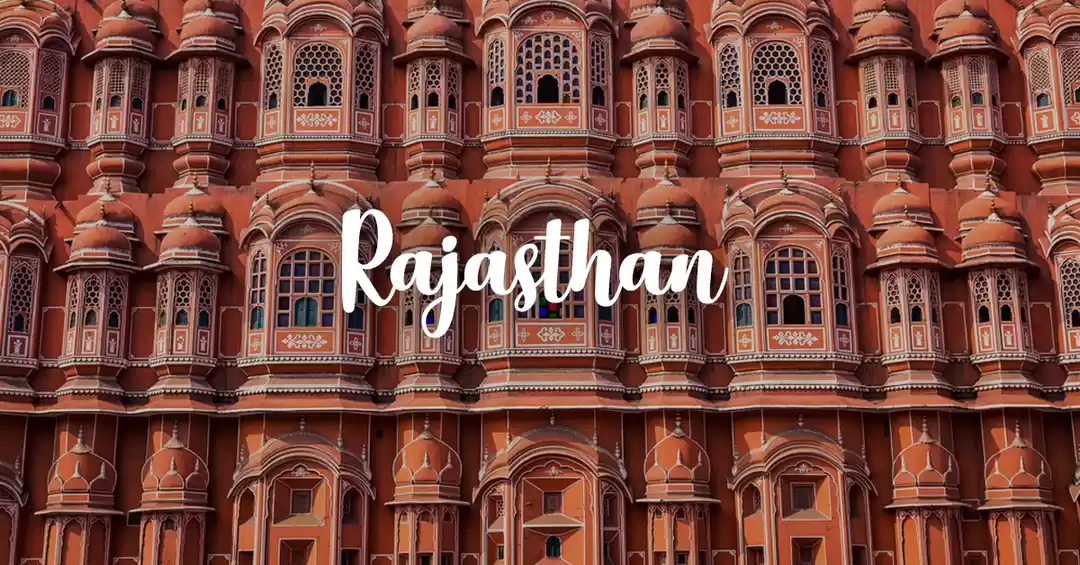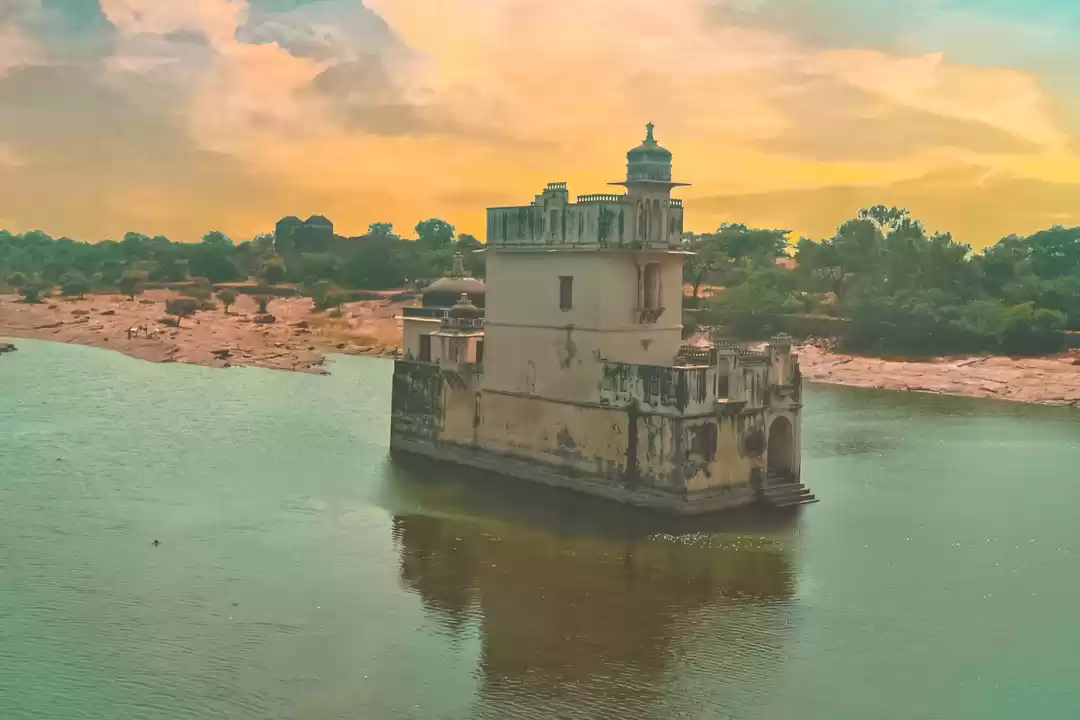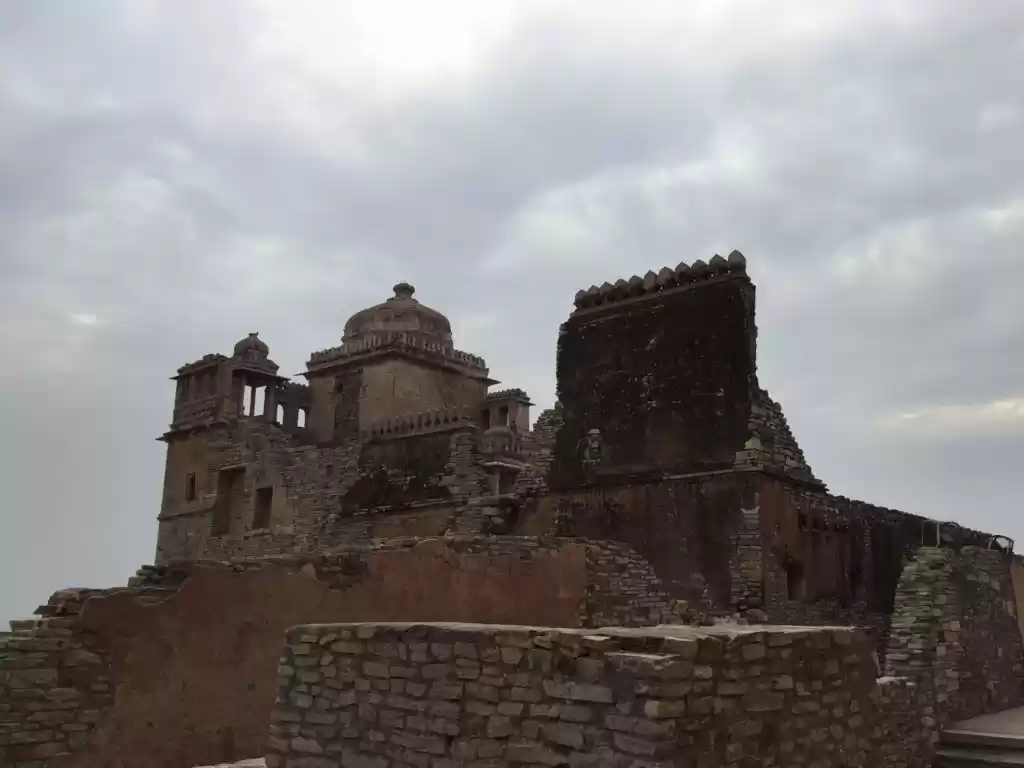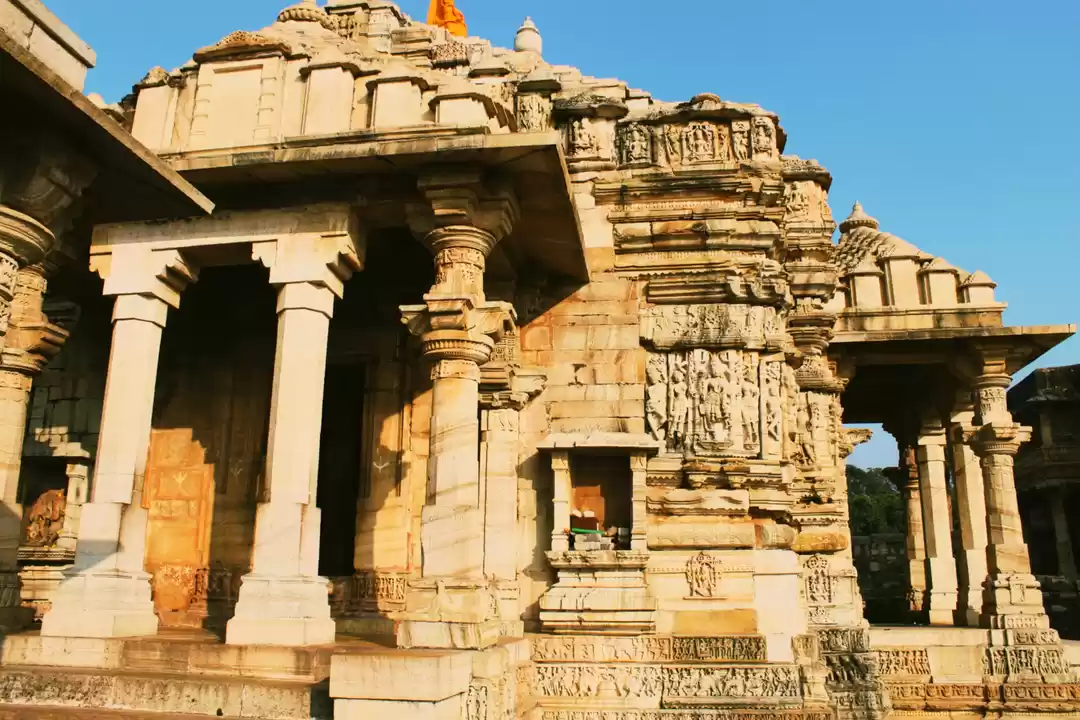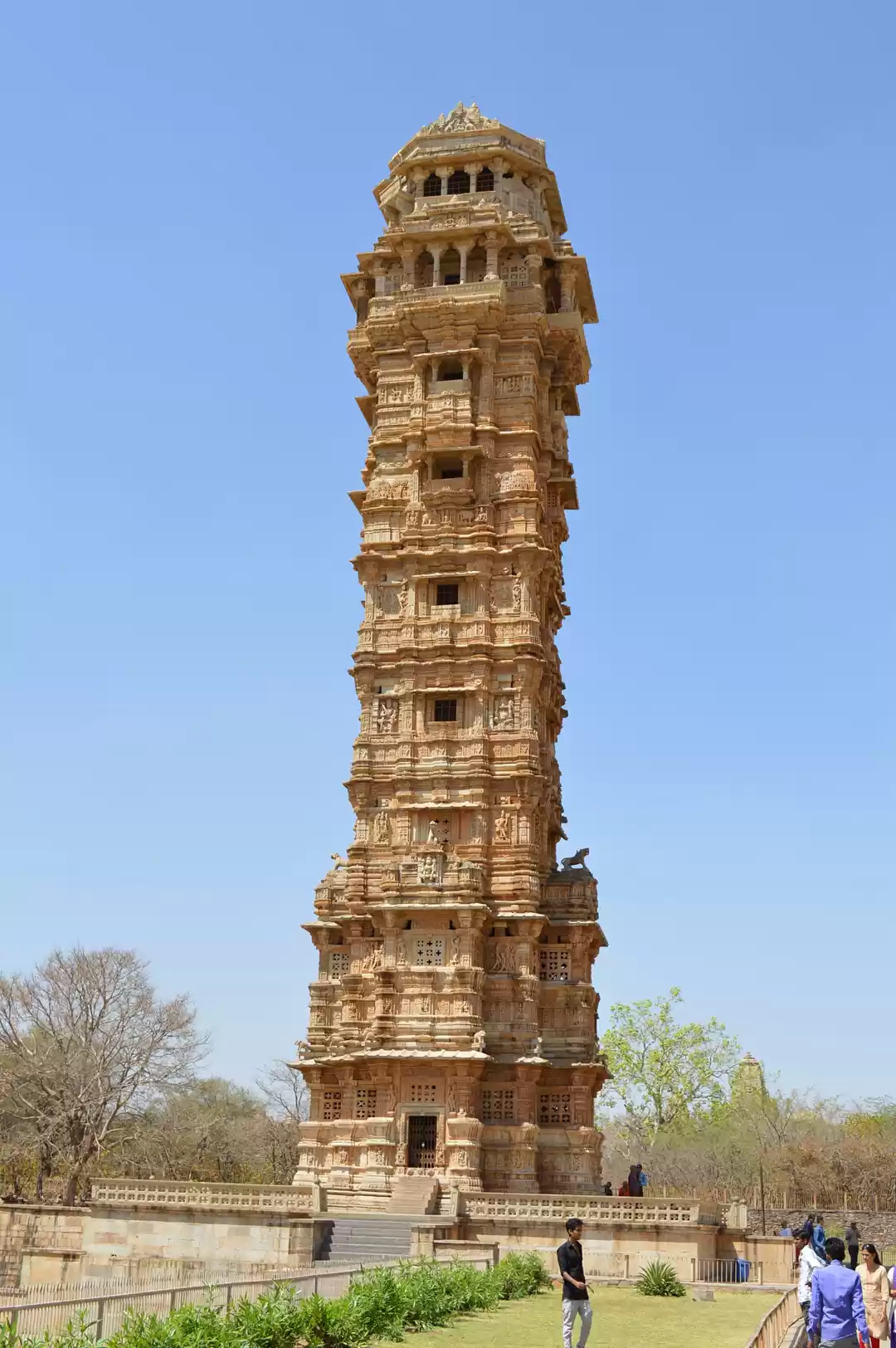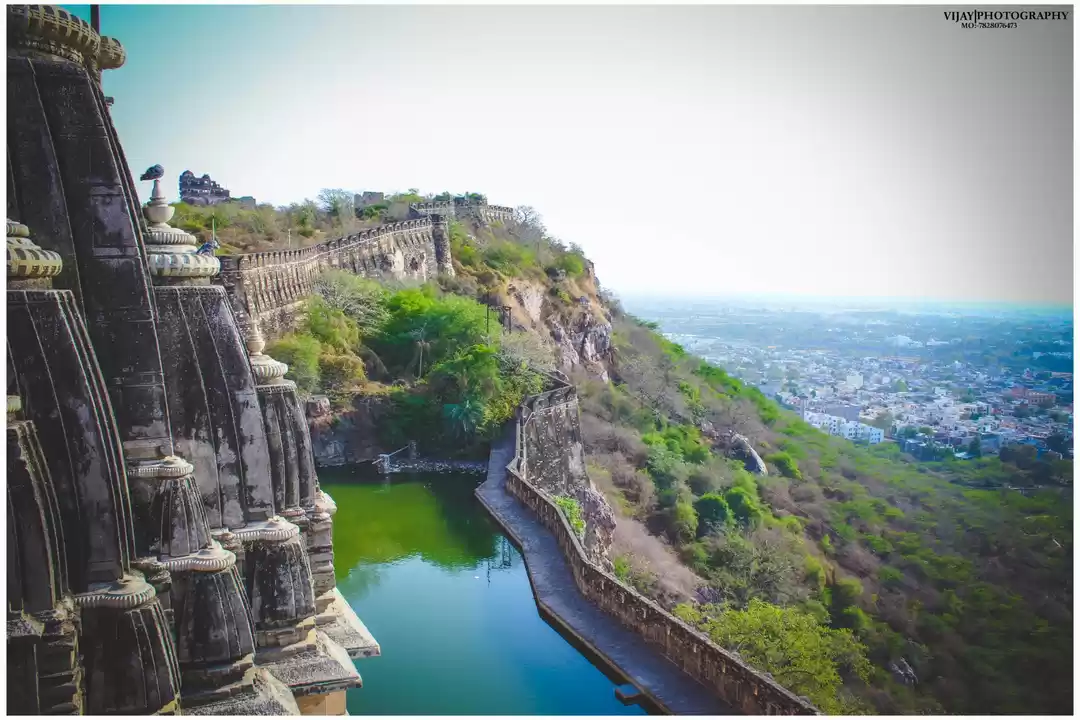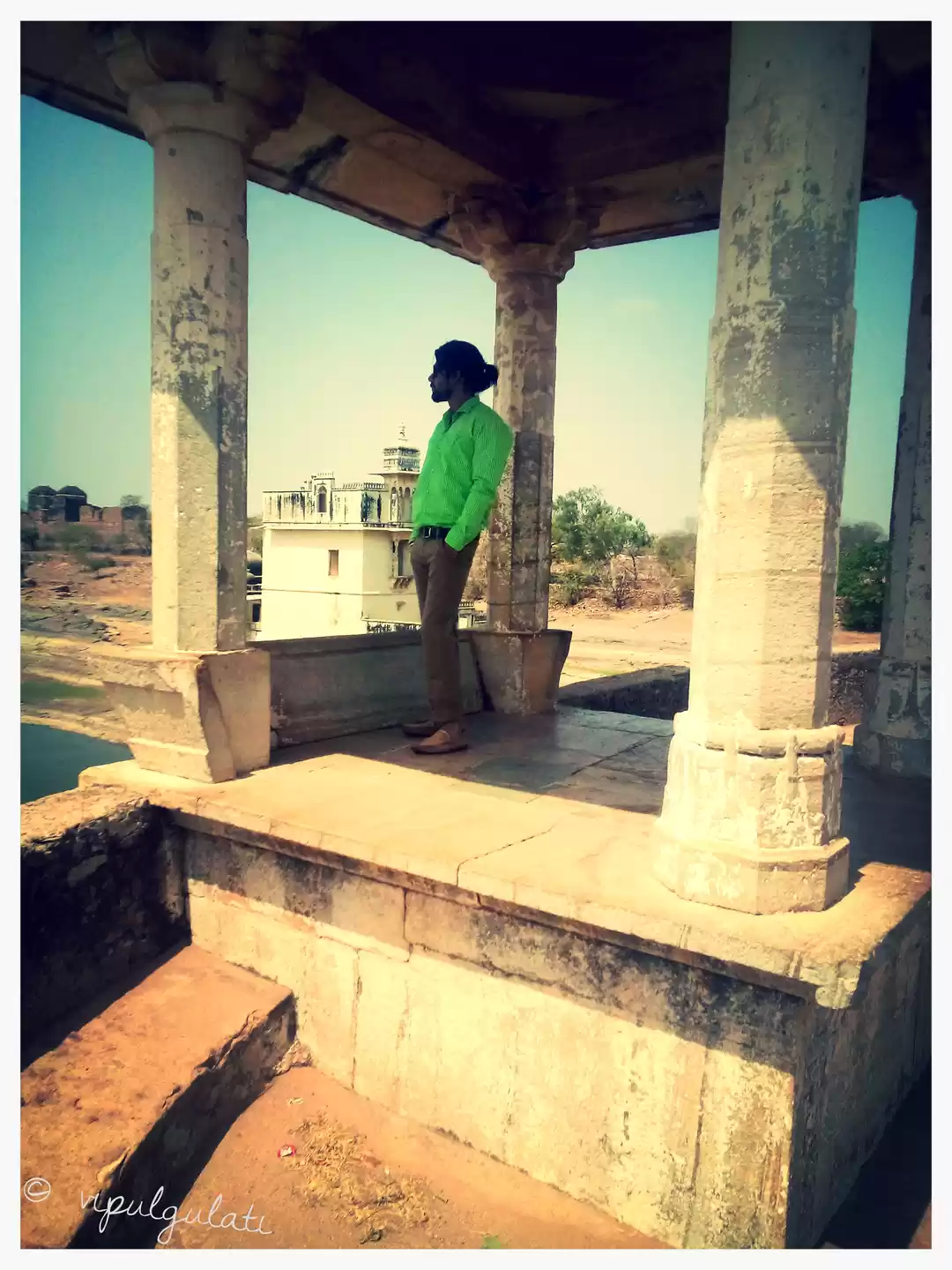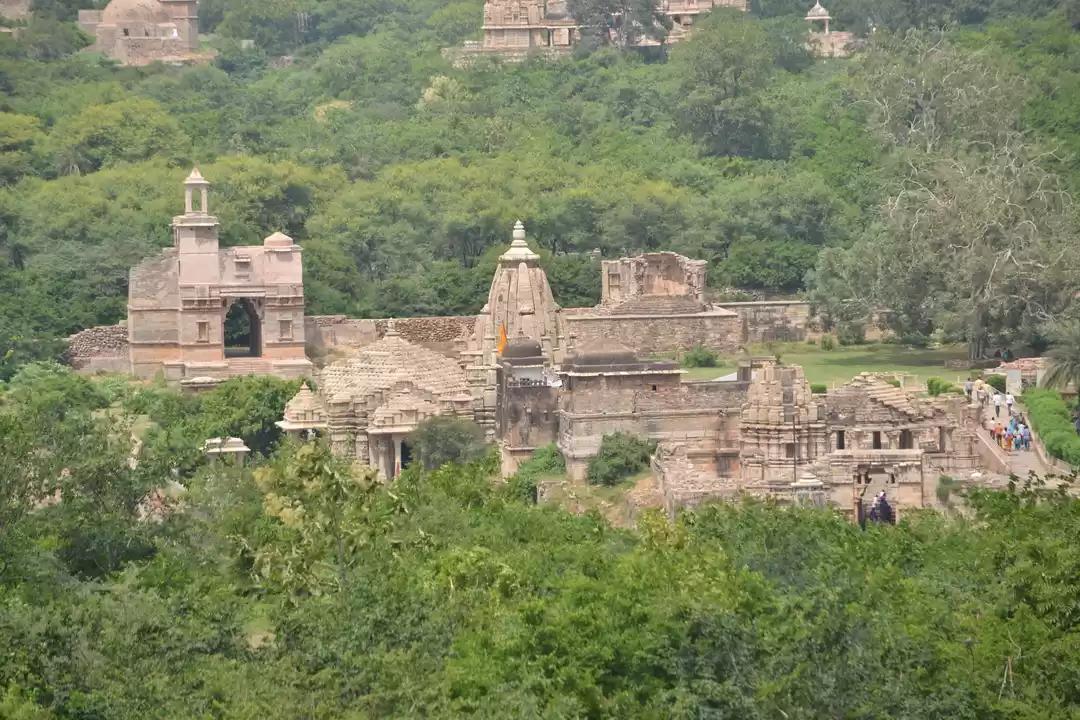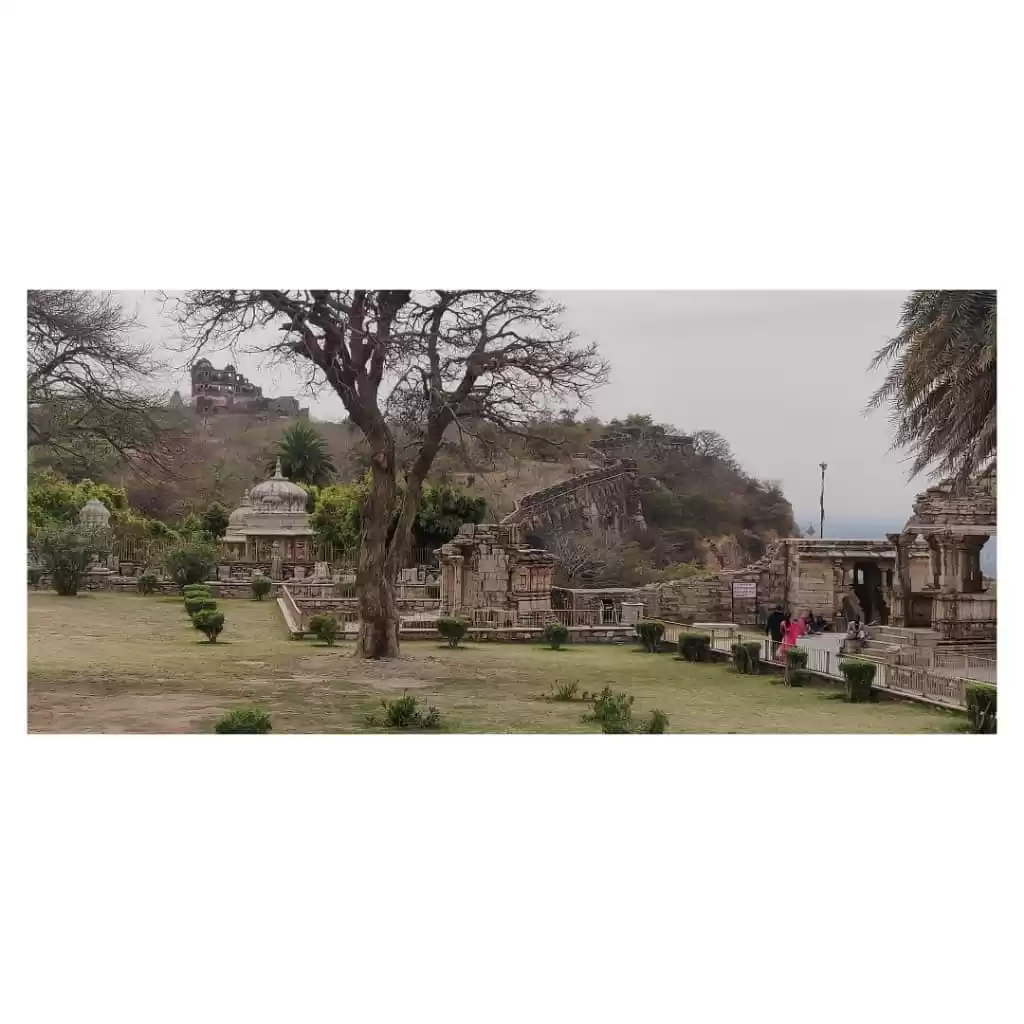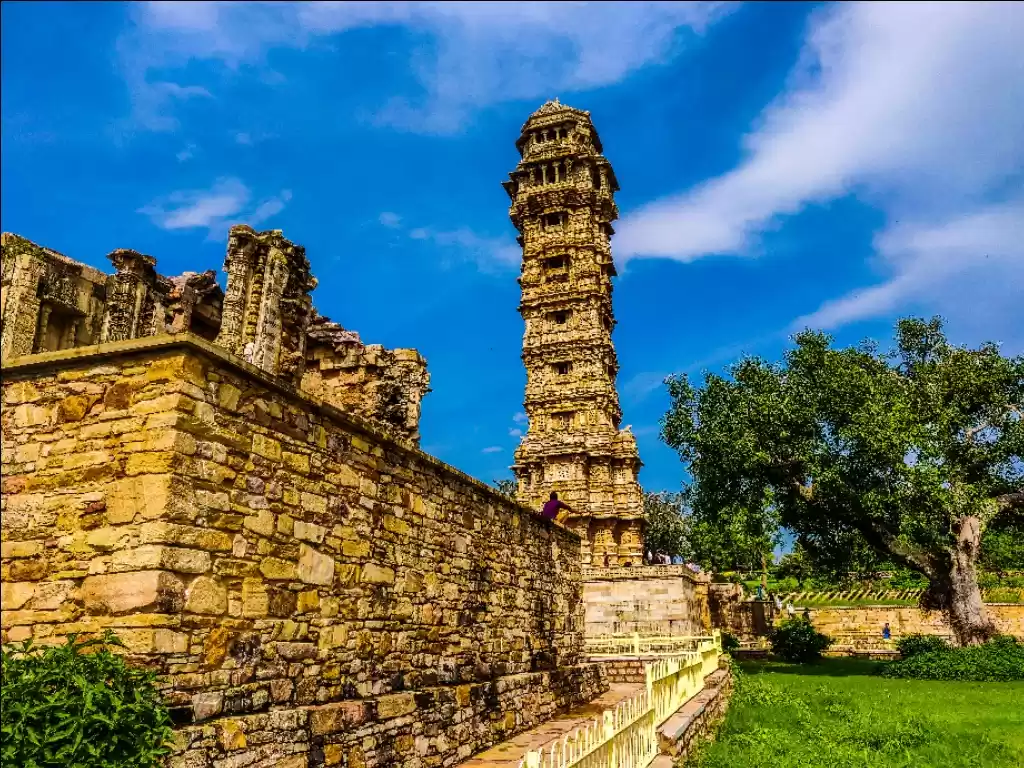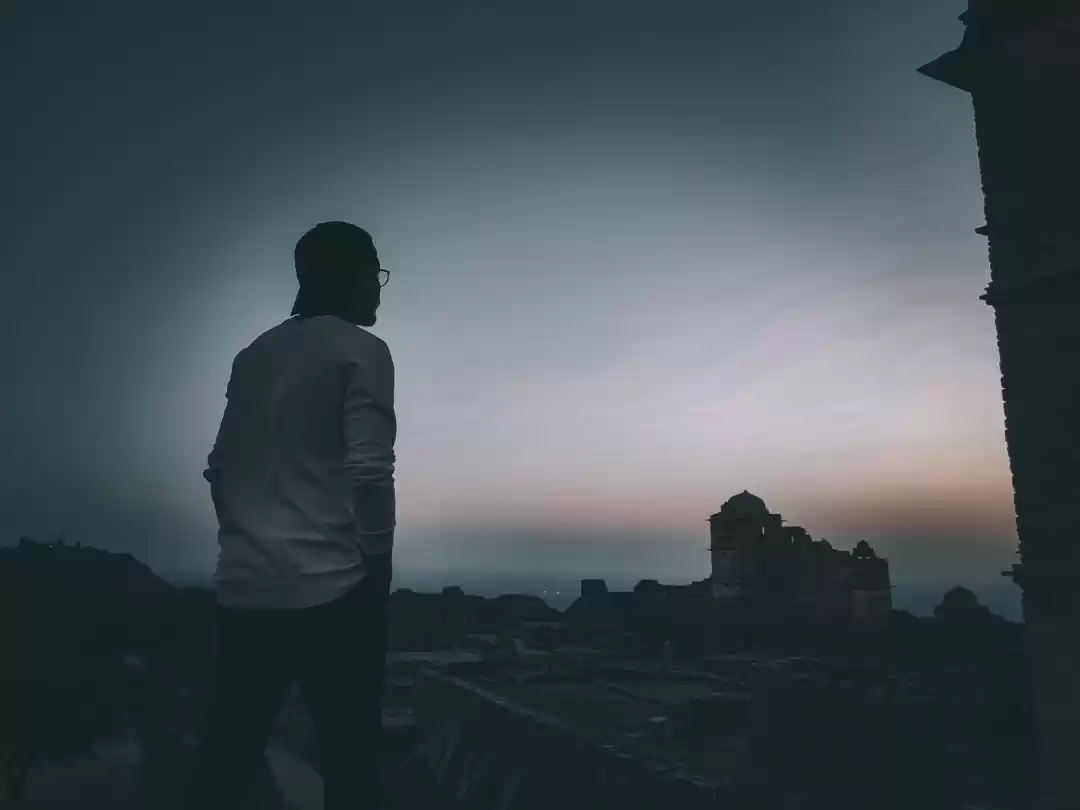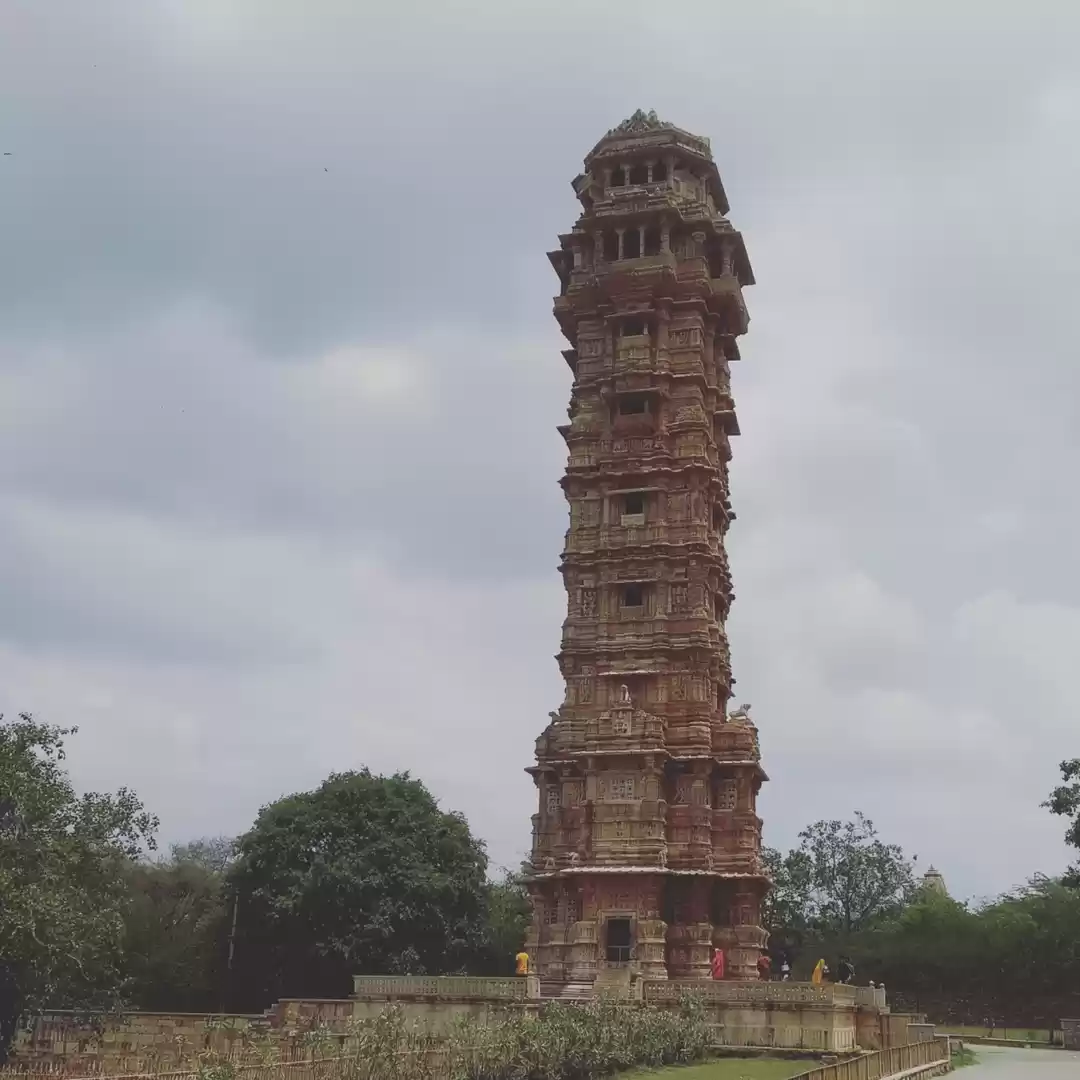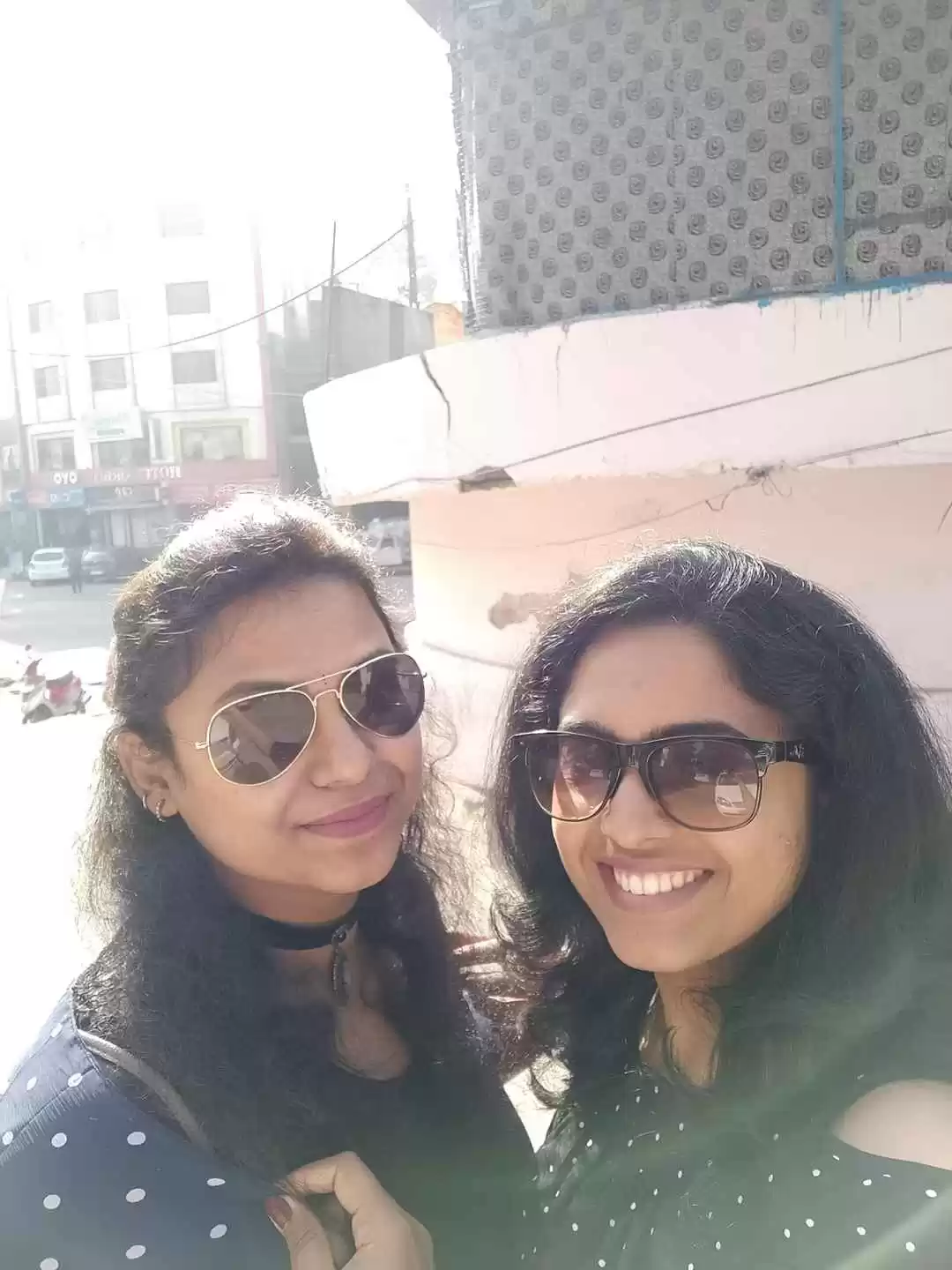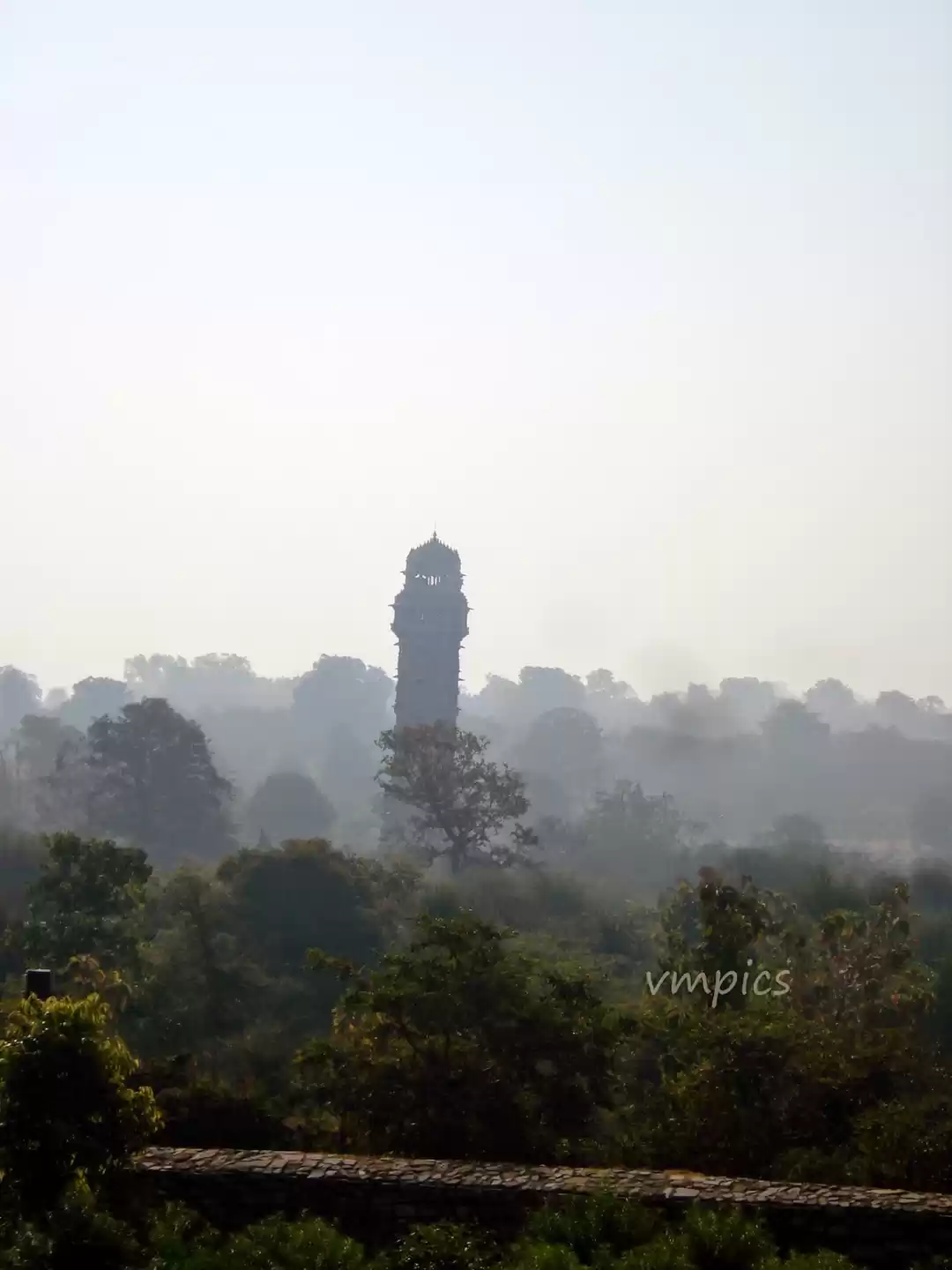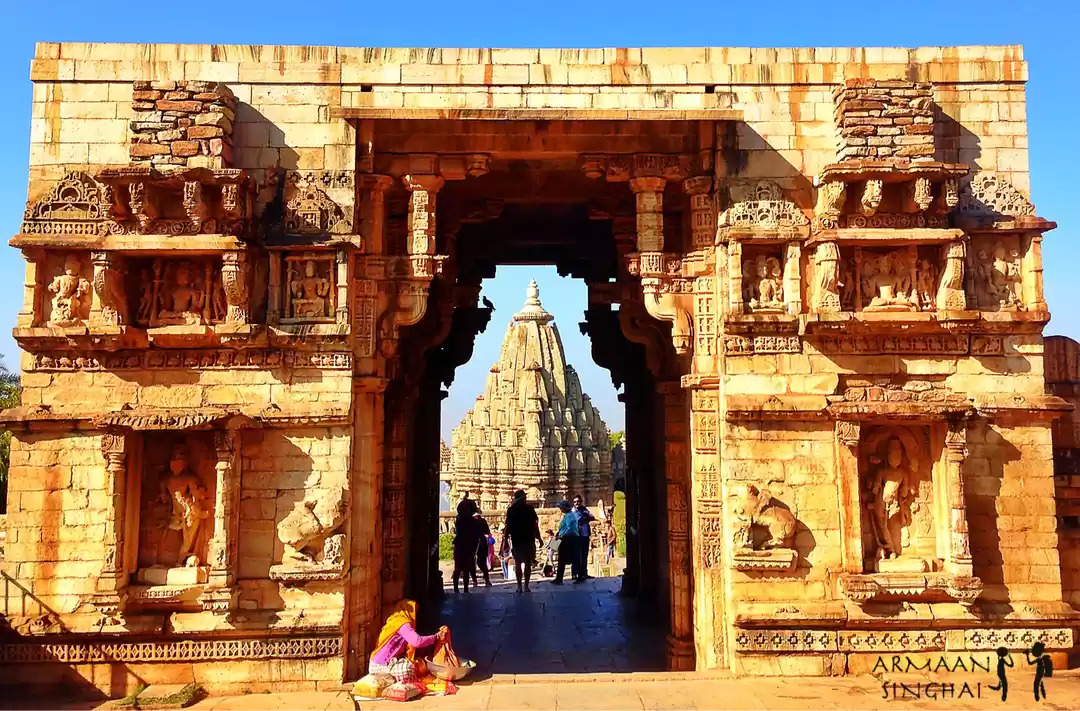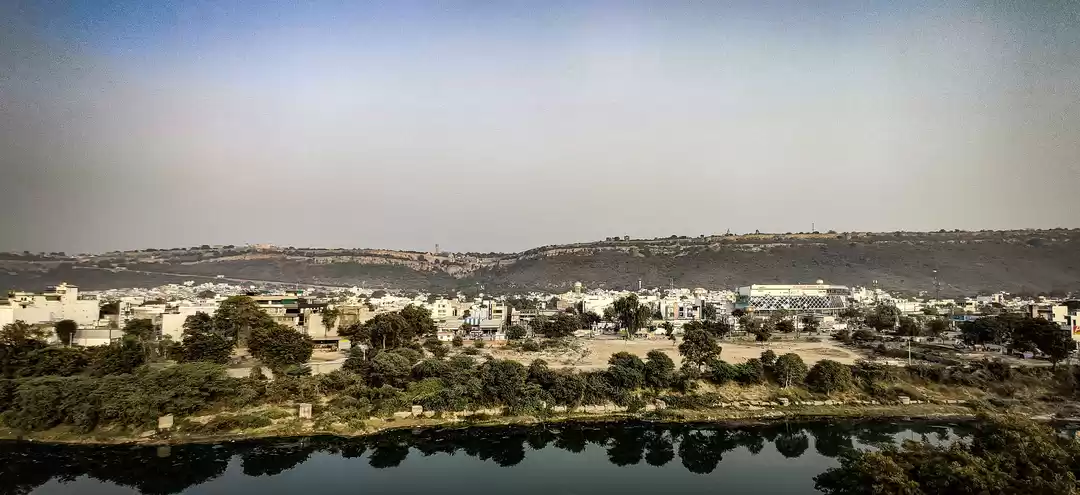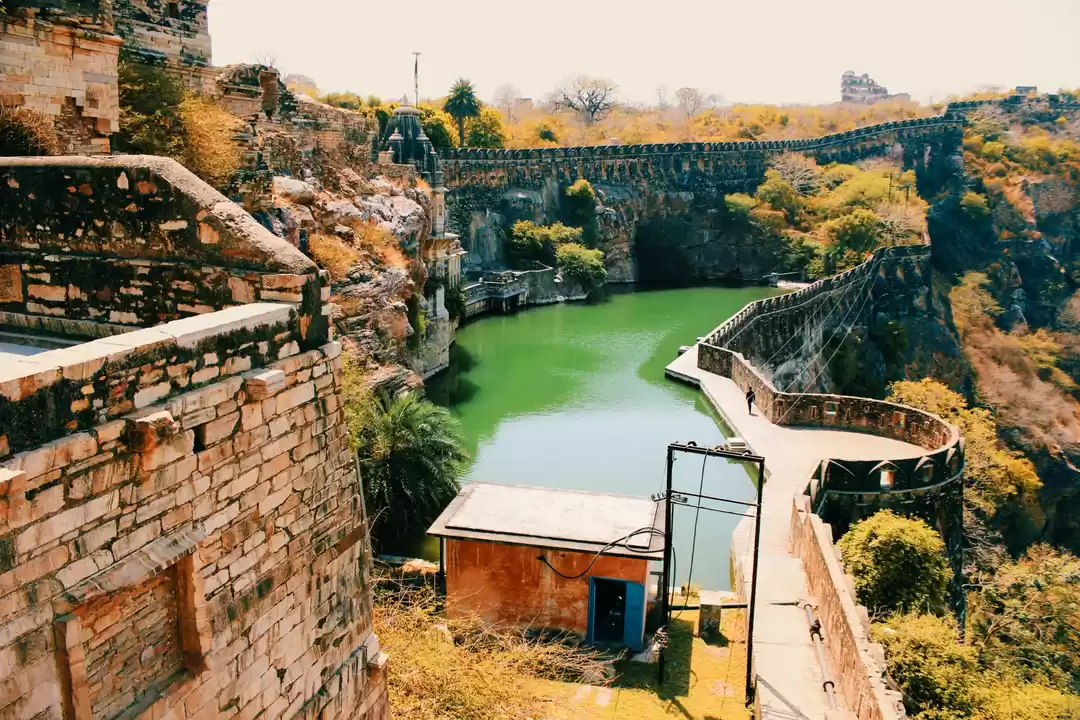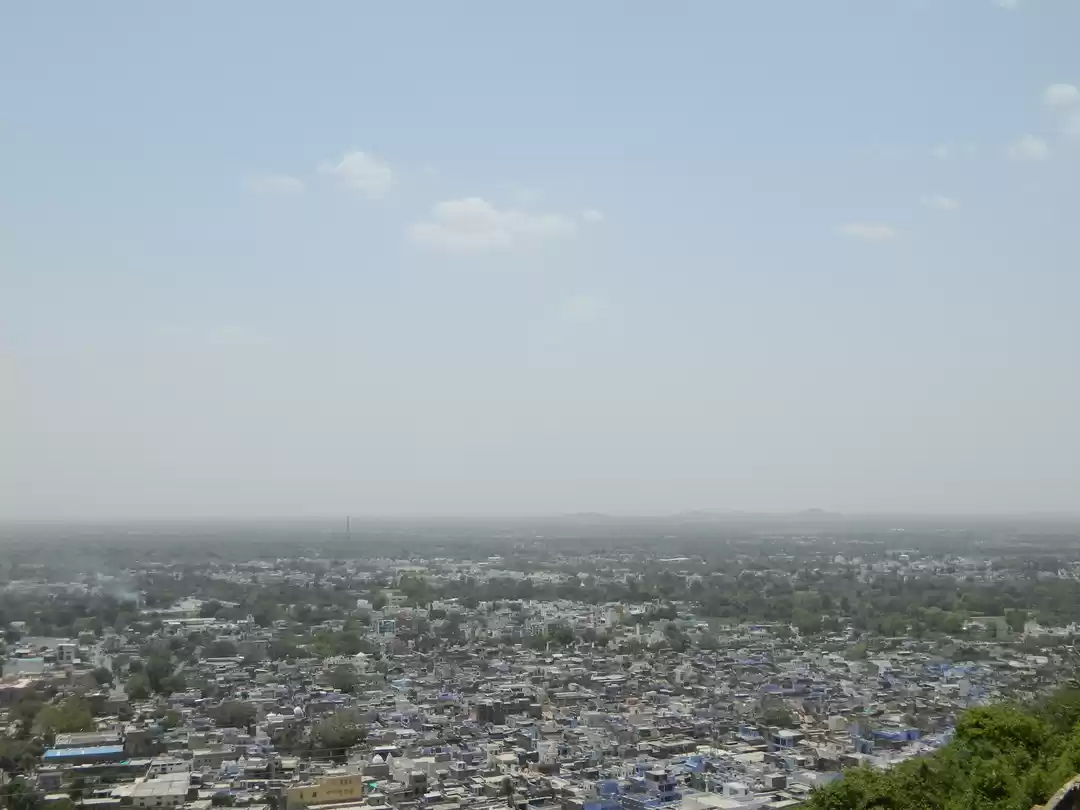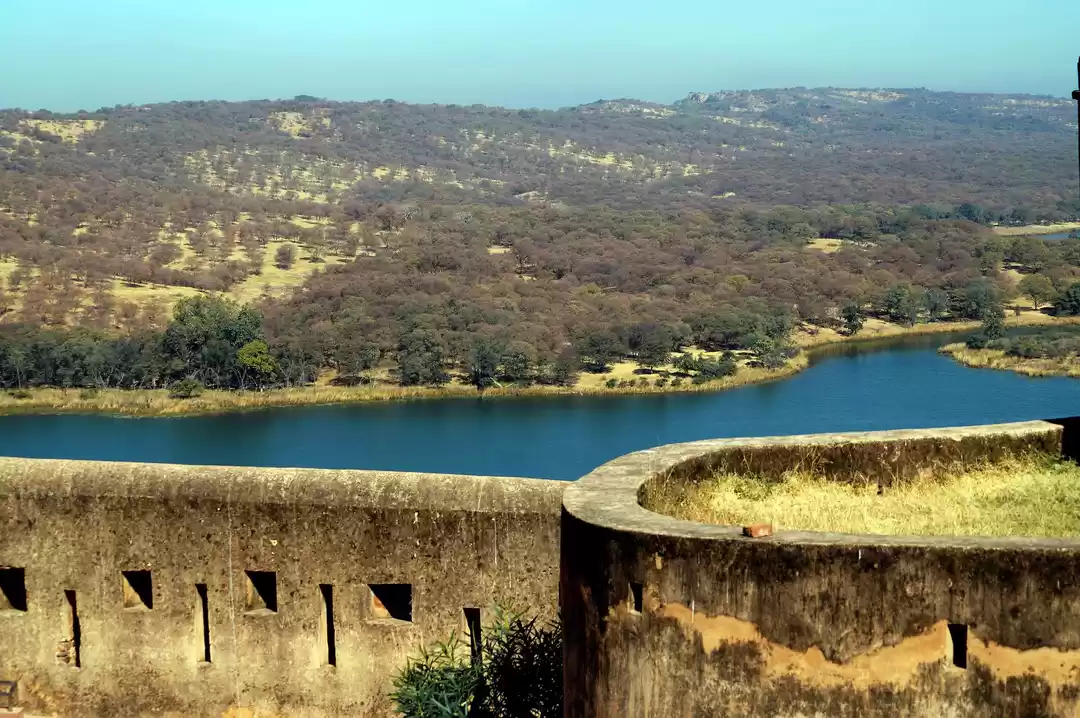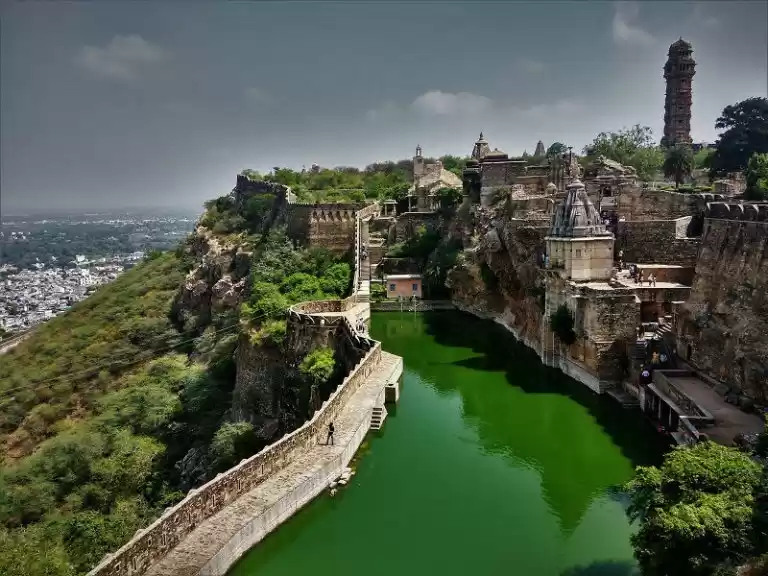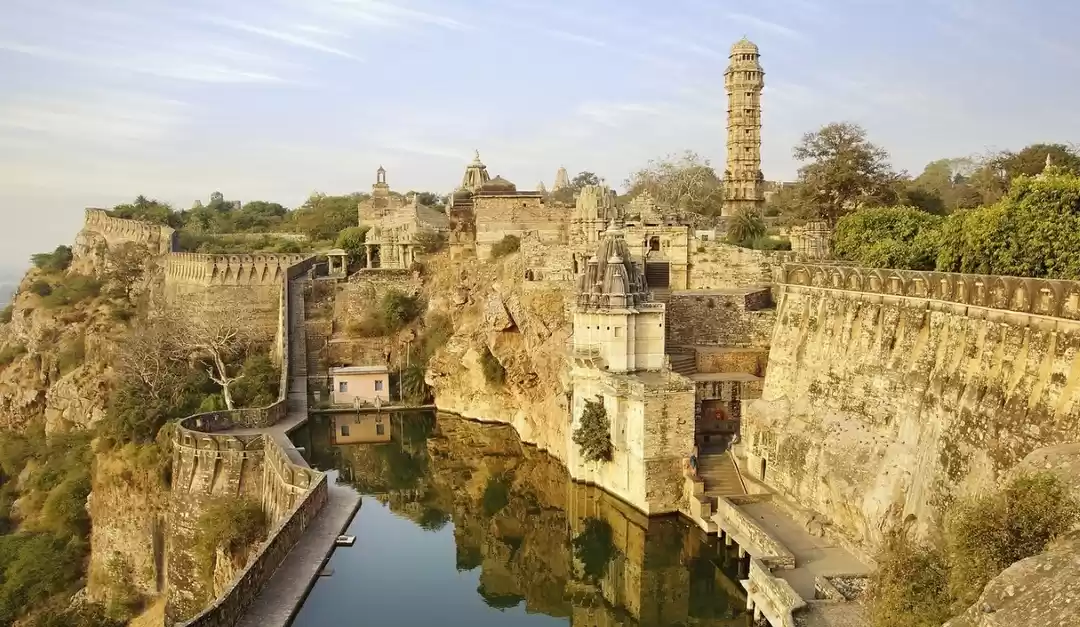Chittorgarh was in-transit for me. While en route to Udaipur from Bundi, I decided to make a stop here. With a few hours available at hand, I tried to make the most of it.

A temple structure in Chittorgarh
My first stop was the Chittor Fort, a UNESCO World Heritage Site and one of the largest forts of India. The Fort houses a number of other structures spread over a vast area.
Sringar Chauri


Sringar Chauri Patterns
Sringar Chauri, the first stop of the many intricately carved structures in and around the Chittor Fort, was built during the 15th century. The temple is dedicated to Santinath and was declared sacred by Jina Sagar Suri, an ascetic of the Jain faith.
Kumbha Palace

Kumbha Palace
Spread over a vast area, home to countless jharokhas, broken walls, and narrow labyrinth-like pathways, the Kumbha Palace still remains to be one of the greatest spots I ever visited in Chittorgarh. The splendid architecture is believed to be built during the 8th century and is one of the biggest monuments of Rajasthan.



Tales in the ruinsBits and parts of historyChittorgarh, as viewed from the Kumbha Palace
Gaumukh Kund
Translated as the 'mouth of cow', the Western part of the Chittorgarh Fort is home to a water reservoir, both of religious and historical importance. Among the travellers and devotees, the Gaumukh Kund has also found a place in the heart of langurs that dominate and grace the water body.


Gaumukh Kund, with Chittorgarh in the vicinityFrom the playful lot
Vijay Stambh

The Vijay Stambh, as viewed from the Kumbha Palace
Vijay Stambh or the victory pillar was constructed during the 15th century and is dedicated to Lord Vishnu of Hinduism. Rising 122 ft above the ground, with nine floors, the gorgeous architectural marvel adds to the beauty of the Chittorgarh Fort.

Through the historical lens
Samadhisvara Temple

Samadhisvara Temple
The temple was constructed in the 11th century AD and is dedicated to Lord Shiva of Hinduism. It comprises of the garbhagriha (literally translated as the 'womb-house' or the sanctum sanctorum, the most revered component of a temple), an antarala (an antechamber or a vestibule), and a mandapa with porticos on its three sides. Its facade is adorned by innumerable figurines of gods and goddesses.
Meera Bai Temple
Meera Bai was a mystic poet and saint who dedicated her life to the worship of Lord Krishna of Hinduism. The temple was constructed during the 16th century and is one of the most sacred places in Chittorgarh. The architectural grandeur, a common feature of most monuments in Chittorgarh, has found its way both in the interiors and exteriors of the temple and continues to attract travellers from all over.

Meera Bai Temple
Though the monuments form a part of the Chittorgarh Fort, they are located in different premises with different entrances.
In a gist,
Chittorgarh fort is about 8 Kms (5 mi) away from the Chittorgarh Railway Station. Shared autos are one of the best modes of transportation and are available to take you up to the fort. However, getting back to the railway station can be tricky. You might have to hire the entire vehicle for yourself. Most of the monuments are located at a walking distance from one another (coming from someone who doesn't have trouble walking long distances). However, if you are not a big fan of walking, you can get pre-booked auto-rickshaws right at the beginning, to take you around. Though I did not stay in Chittorgarh, it has several options to put up at within a reasonable budget. Booking.com I found Chittorgarh to be safe for solo female travellers; asking around helps. Choose local transport; it's the best and cheapest way to get around the city.



